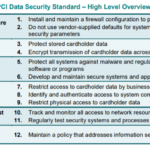In the business realm, maintaining compliance is often perceived as a complex and time-consuming task. The article, “Understanding Common Challenges Businesses Face in Achieving Compliance,” provides an insightful perspective into the scope of difficulties your enterprise might encounter when navigating the extensive labyrinth of rules, regulations, and procedures integral to achieving and maintaining regulatory compliance. It judiciously enlightens you concerning the most prevalent obstacles, offering pragmatic solutions to enhance your company’s compliance culture, mitigate reputational and legal risks, and ultimately, spur sustainable growth.
Understanding Compliance: Challenges and Significance
In the business context, compliance refers to an organization’s ability to operate within legal and ethical boundaries defined by regulatory institutions. These rules can be diverse and wide-ranging, spanning environmental and safety guidelines, financial reporting standards, data security standards, and many more. Achieving compliance is a critical aspect of maintaining business integrity and avoiding the potential financial and reputational ramifications of failing to meet these standards.
Defining compliance in the business context
Compliance typically refers to following a set of prescribed rules or standards. In a business context, this often involves establishing systems and procedures to ensure adherence to laws, regulations, standards, and ethical practices applicable to an organization. Compliance ensures that a business operates in a lawful and ethical manner, it prevents fraudulent activities, protects company stakeholders, and promotes an organization’s overall reputation in the marketplace.
Importance of achieving compliance
Achieving compliance is integral as it safeguards a business from severe legal penalties, financial loss, and reputational damage. It demonstrates a firm’s commitment to adhere to ethical standards, which strengthens relationships with customers, employees, partners, and regulatory bodies. Compliance promotes fairness and equality, enhances safety, and are the cornerstone of trust in business relationships.
Complexity of Laws and Regulations
Compliance becomes particularly challenging given the complexity of domestic and international laws and the difficulty in keeping up with changing regulations.
Disparity in domestic and international laws
Firms operating across borders often face the challenge of managing the disparity between domestic and international laws. Laws can vary drastically from one country to another, and keeping up with these changes requires considerable time, effort, and resources. Understanding and complying with these diverse regulations can prove to be a complex task for businesses.
Difficulty in keeping up with changing regulations
Regulations are not static; they evolve continually to account for changes in the business environment and societal values. Adapting to these changes and implementing them into a firm’s operations is often cumbersome and challenging.
Interpreting complex regulations
Interpretation of complex regulations can also pose a significant challenge. A slight misinterpretation can lead to non-compliance, attracting hefty penalties and damaging an organization’s reputation. The technical language and lack of clarity in regulations sometimes results in confusion and erroneous compliance efforts.
Costs of Compliance
Running a compliant business is not a cost-free endeavor. Organizations need to make substantial investments in setting up compliance mechanisms, maintaining them as regulations change, and dealing with the financial consequences of potential enforcement actions.
Investment in compliance mechanisms
Businesses need to invest in the development and implementation of comprehensive compliance programs. Costs may include consultation fees, systems development, employee training, and regular monitoring and auditing.
Cost of potential penalties
Non-compliance can lead to severe penalties including fines, legal sanctions, and damage to corporate reputations. The cost can be extremely high depending on the nature and extent of the non-compliance.
Operational costs for compliance maintenance
Compliance is not a one-time activity. It demands continuous updating, auditing, and adherence to evolving regulations, all of which can result in high ongoing operational expenses.
Managing Data Privacy and Security
As data becomes an increasingly valuable asset in modern business, the challenge of managing data privacy and complying with data protection regulations have become significant compliance concerns.
Challenges in effective data management
Managing data is a daunting task due to its proliferation across different systems, document types, languages, and locations. It becomes even more complex with the presence of structured and unstructured data.
Risks of data breaches and cybersecurity threats
In an era of increased digitalization, the risk of data breaches and other cyber threats loom large. These risks can lead to non-compliance with data protection laws such as the EU General Data Protection Regulation (GDPR), entailing severe penalties.
Compliance with data protection regulations
Different jurisdictions have their own data protection regulations, and abiding by all of them can be a challenge, particularly for businesses operating across different regions. The dynamic nature of these regulations makes it even harder for businesses to stay compliant.
Lack of Expertise and Understanding
Ignorance or insufficient knowledge about applicable regulations, difficulty in training employees, and the capability to hire and maintain skilled compliance staff are among the main concerns for businesses dealing with compliance.
Insufficient knowledge about applicable regulations
It is crucial to understand the rules before one can comply with them. Businesses often suffer from a lack of knowledge about the regulations that apply to their operations, leading to inadvertent non-compliance.
Difficulty in training employees about compliance
Training employees in compliance is challenging yet critical. Workforces need to be made aware of the laws, ethical standards, and company policies they are expected to follow, simultaneously promoting a culture of ethical behavior.
Hiring and maintaining skilled compliance staff
Managing compliance effectively often requires a dedicated, skilled team. The shortage of compliance experts makes hiring such professionals challenging, and retaining these skilled employees brings its own set of hurdles.
Cultural and Organizational Challenges
Compliance is not only a technical task but also a cultural and organizational challenge that addresses resistance to change and promotes ethical behavior and integrity.
Creating a culture of compliance
Creating a culture of compliance within an organization ensures that conduct standards permeate all levels, from top management to lower-level personnel. This can be challenging, as it requires a shift in mindset and behavior across the organization.
Addressing resistance to change
Resistance to change is a common human trait that can be a stumbling block in creating a culture of compliance. Addressing this resistance and winning over employee buy-in requires substantial effort and leadership.
Promoting ethical behavior and integrity
Promoting ethical behavior and integrity is a linchpin of a successful compliance program. Combating potential ethical lapses and fostering a culture that emphasizes honesty and transparency can be a complex task, but it’s worth the effort, contributing to long-term corporate success.
Integration of Compliance in Business Operations
Compliance should not be seen as a burden to be shouldered by the organization. Instead, it should be integrated into standard business operations, striking a balance between pursuing business growth and complying with laws and regulations.
Embedding compliance in business processes
To make compliance seamless and effective, it should be embedded in the day-to-day operations of the business. Doing so not only enhances regulatory adherence but also reduces the likelihood of breaches and failures.
Balancing between business growth and compliance
Striking a balance between daunting compliance requirements and the need for business growth can be challenging. Overemphasis on either side may disrupt the equilibrium and affect the overall business performance.
Technology and Compliance
Despite being a tool to aid compliance, technology brings its own set of challenges concerning updates, modernization, and vulnerabilities.
Leveraging technology for compliance
Technology plays a vital role in streamlining and automating compliance processes. Digital tools can help in monitoring compliance, conducting audits, and ensuring data security and privacy.
Challenges in updating and modernizing technology
However, keeping up with rapid technological advancements can be demanding. Updating and modernizing technology requires significant investment and time, making it a substantial challenge for many organizations.
Dealing with technological vulnerabilities
As businesses rely more on technology, they also become susceptible to the vulnerabilities it brings, such as cybersecurity threats. Ensuring compliance in this digital landscape requires a robust approach to technology management.
Risk Assessment and Management
Assessing and managing potential compliance risks form the groundwork of a strong compliance program.
Identifying potential compliance risks
It is crucial to be proactive rather than reactive when it comes to compliance. This means identifying potential compliance risks before they materialize and implementing strategies to tackle them.
Implementing effective risk management strategies
Once risks are identified, an organization must strategize on how to mitigate them. This involves designing appropriate controls, providing relevant training, or leveraging technology to support better compliance outcomes.
Continuous monitoring and evaluation of risks
Compliance is not a one-off activity, but a continual area of risk to be managed. This requires constant vigilance, regular audits, and adjustments to existing compliance mechanisms to prevent breaches and failures.
Strategies to Overcome Compliance Challenges
Tackling compliance challenges necessitates the right strategies including investing in compliance training, resorting to technology, promoting proactive compliance culture, and close interaction with relevant regulatory bodies.
Investing in compliance training and education
Knowledge is power. Against this backdrop, investment in compliance training and education for employees at all levels is a powerful tool for maintaining compliance.
Utilizing technology for effective compliance
Technology can be leveraged to make compliance more efficient and less burdensome. Modern tools and techniques can aid in tracking compliance, predicting and preventing risks, and reporting non-compliance.
Developing a proactive compliance culture
Encouraging a proactive compliance culture within the organization is key to preventing non-compliance. This involves top-down implementation of ethical behavior and principles, as well as giving employees a voice in pointing out non-compliant activities.
Engaging with regulatory agencies and bodies for better understanding
Engagement with regulatory agencies and bodies can provide insights into requirements, future changes, and best practices. Such relationships help businesses gain a more thorough understanding of the compliance landscape and prepare for future regulatory shifts.
In conclusion, understanding compliance challenges is the first step in creating a strong compliance culture. By understanding the complex landscape of regulations, investing in the right resources, and maintaining a commitment to ethical behaviour and ongoing learning, businesses can transform compliance from a challenge into an opportunity. Achieving compliance not only protects businesses from penalties but also enhances their reputation as ethical, responsible entities.









